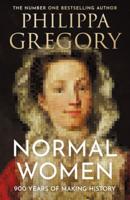Publisher's Synopsis
This historic book may have numerous typos and missing text. Purchasers can usually download a free scanned copy of the original book (without typos) from the publisher. Not indexed. Not illustrated. 1909 edition. Excerpt: ... CHAPTER XIX. THE FUTURE OF CHRISTIANITY. NOW THE question arises, "What will become of Christianity?" If the historical events of the past are to be taken as precedents, religions come and pass away according to definite conditions. They will have their beginning and their end, and Christianity may disappear just as the religions of antiquity died out. Christianity had its origin; it reached the heights of its dogmatic unfoldment; it passed through several phases, and at present, the current views of its most essential doctrines are fast changing. We have lost the naivete of our forefathers. Some dogmas have been considerably modified, others have been silently dropped, and not a few have become purely symbolical. Upon the whole we may say that we no longer believe in the letter of the credo. Are these facts to be considered as symptoms of decay which indicate the end of Christianity? We do not think so; all depends upon Christianity and its representatives. If Christianity possesses sufficient innate strength to assimilate the new truths of science, it will survive and emerge from the present crisis stronger than before; but if it rejects the new revelation it is doomed. It has been customary to characterize scientific truth as secular and purely human, in contrast with theological truth as divine, but this conception is based upon an error. The truth of science, if it is genuine truth, is not made by man, it is superhuman. Scientific truths are not fashioned by scientists, they are discovered, and being the eternalities of existence, they represent the divine thoughts that sway the world. Science is a genuine revelation, and we may look upon it, to use theological language, as the revelation of the Holy Spirit. There is a great truth...






